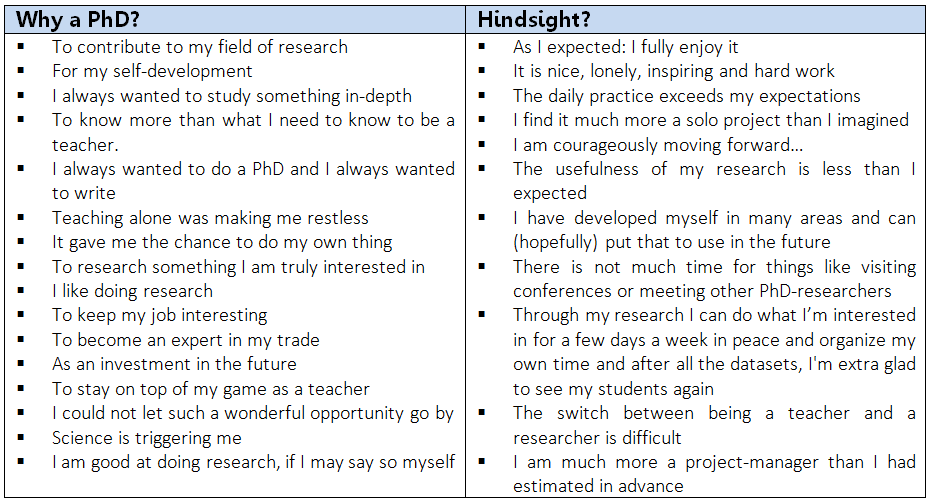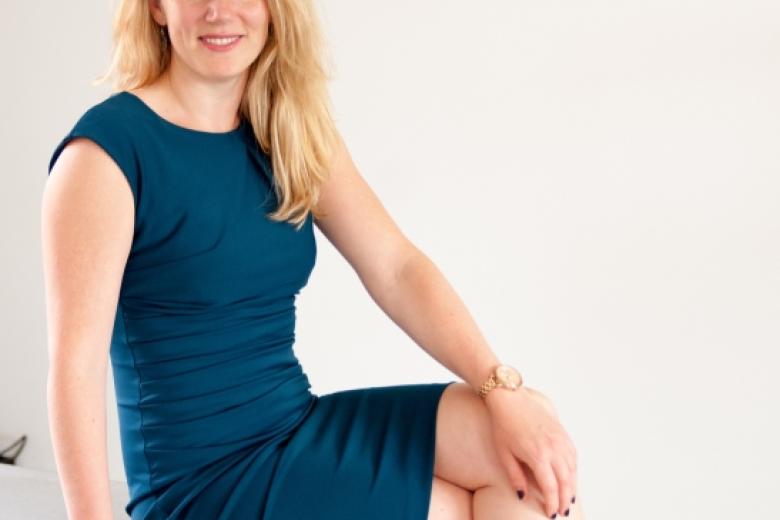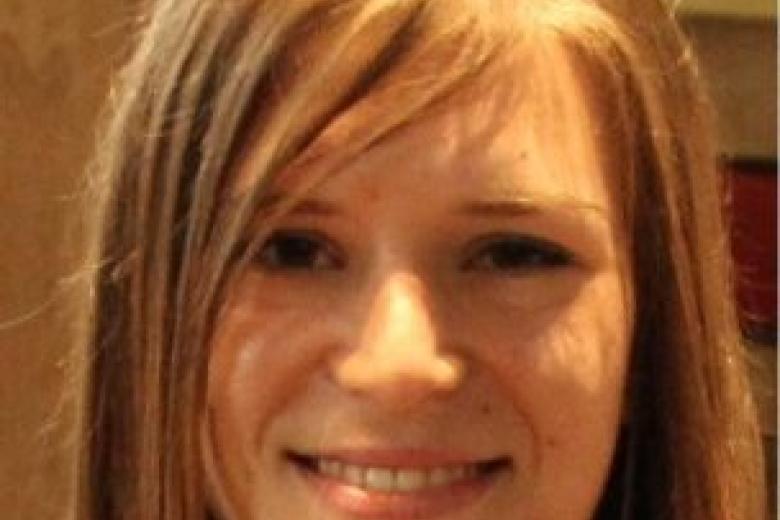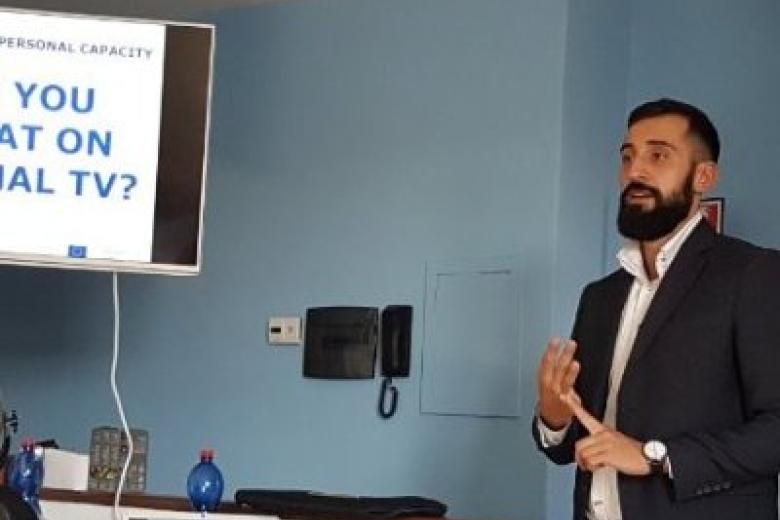To PhD or not to PhD
I knew the letter would arrive in June. Every day I walked towards the front door and quickly glanced at the mailbox. No letter. Then, on a sunny Saturday morning, it was there. I felt like all those high schoolers from all those movies who applied for these fancy universities, waiting for their letter. Opening it slowly and knowing that the first sentence would say it all. The first sentence of my letter started with: “We are pleased to inform you…”. My heart beated faster than during the run I did the previous day.
Psychology has always interested me. I finished my Bachelor’s degree in Psychology in Groningen and completed my Master’s degree in Psychology and Law at the faculty of Psychology and Neuroscience in Maastricht. A couple of years later I got my Master’s degree in Criminal law and Criminology.
For the past three years, I’ve worked at the NHL University of Applied Sciences. My job is divided into two parts: three days a week I work for the Cybersafety Research Group and two days a week I teach. Maybe you have read about the unqualified researchers who are teaching nonetheless. Even though I finished my degree in didactical competence, I see every lecture as a challenge. In the current digital society, our ability to concentrate is lacking. When I talk for 45 minutes about reliability and validity, in my experience, students will remember about ten percent of what I’ve said the next week. If I’m lucky. Therefore, I have significantly changed my lectures during the past three years. For instance, my Powerpoint or Prezi slides have much less text and much more visual material and I try not to talk for more than fifteen minutes in a row. I use short assignments instead and I use tools like Socrative to quiz my students (the Space Race is very popular).
The research I have conducted until now for the Cybersafety Research Group focused on several projects for the duration of approximately a year per project. For instance, my colleagues and I have worked on an online tool: internet security for adolescents. We have surveyed 2.825 small and medium-sized enterprises about cybercrime and we wrote three practical guides for the police about digital policing.
I like the combination of teaching and research and I enjoy working together with my colleagues on the same project. But, as is a logical question when you’re a researcher: what about a PhD?
Recently, I’ve read an article about the fear of commitment and job hopping. No surprise: there is a connection (Leong & Chervinko, 1996). Career indecision though, also not a surprise, is viewed as a normal stage of development that most young adults eventually ‘resolve’ (I’m 29, does that still count as being a ‘young adult’?).
Let’s get back to the letter. The NWO (The Netherlands Organisation for Scientific Research) introduced a grant in 2012 called the Doctoral Grant for Teachers. Meant for teachers to also do PhD research. In January of this year, I applied. After a nerv-wracking interview in April with seven doctors, I had to wait for their evaluation of the application and their trust in my abilities to actually do the research. Hence: the letter
As you probably know, PhD research has a (financial) time limit of four years. In my case, NWO has extended it to five years. Unfortunately, research shows that only 1 out of 10 make it within that given time. After seven years, 2 out of 3 have defended their doctoral thesis. A significant part has quit by then. This is one of the reasons why my heart was beating so fast when I read that first sentence. I asked myself almost immediately: am I really going to do this?

So, as a researcher, I did what every researcher would do: I did my research. I won’t bore you with the specifics - not to say that research is boring of course - but here is some input I got from PhD-researchers who received the same doctoral grant for teachers and are conducting research for some time now. I asked them why they chose to do PhD research in addition to being a teacher and, in hindsight, how it lived up to their expectations. The results of my research are presented in the table below.

The statement that sounds familiar is: “After all the datasets, I'm extra glad to see my students again”. I too find the switch between these two parts of my job very well-matched. For instance, on Monday I sit at my desk writing a research report. When on Tuesday, I talk to students about who Philip Zimbardo is and answer questions like: “Who is the American Psychological Association and why do they want me to use those comma’s?”. Nevertheless, there are definitely moments when both parts of my job peak at the same time. In those instances, it can be tough to get everything done.
Furthermore, my research has shown me that the PhD-researchers are - much to my relief - quite positive. For one researcher it even exceeds expectations. Though, several also state it is hard work and time is limited. I know it will be difficult to keep the work-life balance in order. Moreover, it is a path that can be lonely. Luckily in my case, I have a team of great researchers around me. Some of them have their PhD already.
An additional web search showed me that PhD-research may take some time. It changes people. If you work hard enough on your doctoral thesis, it does not necessarily lead to the desired effect (“Doing a thesis is like mucking out a stable. […] If you stay in the stable too long, the stink will kill you”).
After opening the letter, I gave myself some time to think. The question circling around in my head slowly changed from ‘am I really going to do this?’ to ‘am I going to let this opportunity go by?’. Eventually, I decided to go for it. I’ll just take it one year at a time. That is 365 days. A time. *Heart starts pounding*
About the author
This blog was written by Renske Zuurveen, who graduated from Maastricht University in 2009 with a MSc. in Psychology and Law. Renske Zuurveen MSc LLM is a teacher and researcher at NHL University of Applied Sciences and the Open University. You can contact her by e-mail: R.Zuurveen@nhl.nl.
-
5 Differences Between Startups & Starting Businesses
In this article I discuss several differences between startups and starting businesses. I find this important because over the last year, I’ve gotten increasingly frustrated about the types of questions I (as a startup founder) would get. “Can you already live from your startup?” “Why is raising...

-
Work with multiproblem families
As a family therapist in an ambulatory setting, I see varying psychiatric disorders in multiproblem families. I specifically work with families who not only suffer from any kind of disorders, but also are affected by mild intellectual disability. This blog encompasses two parts. First, it will give...

-
Getting jobs in the Eurobubble: A game of inches
I had a lot of fun at the EU Studies Fair. For me it proved a very fruitful event for both students and professionals who are trying to get a foothold in that lions’ den that I call “Eurobubble jobs.” In my experience this can be quite a daunting challenge, but if it has been a journey that I think...
